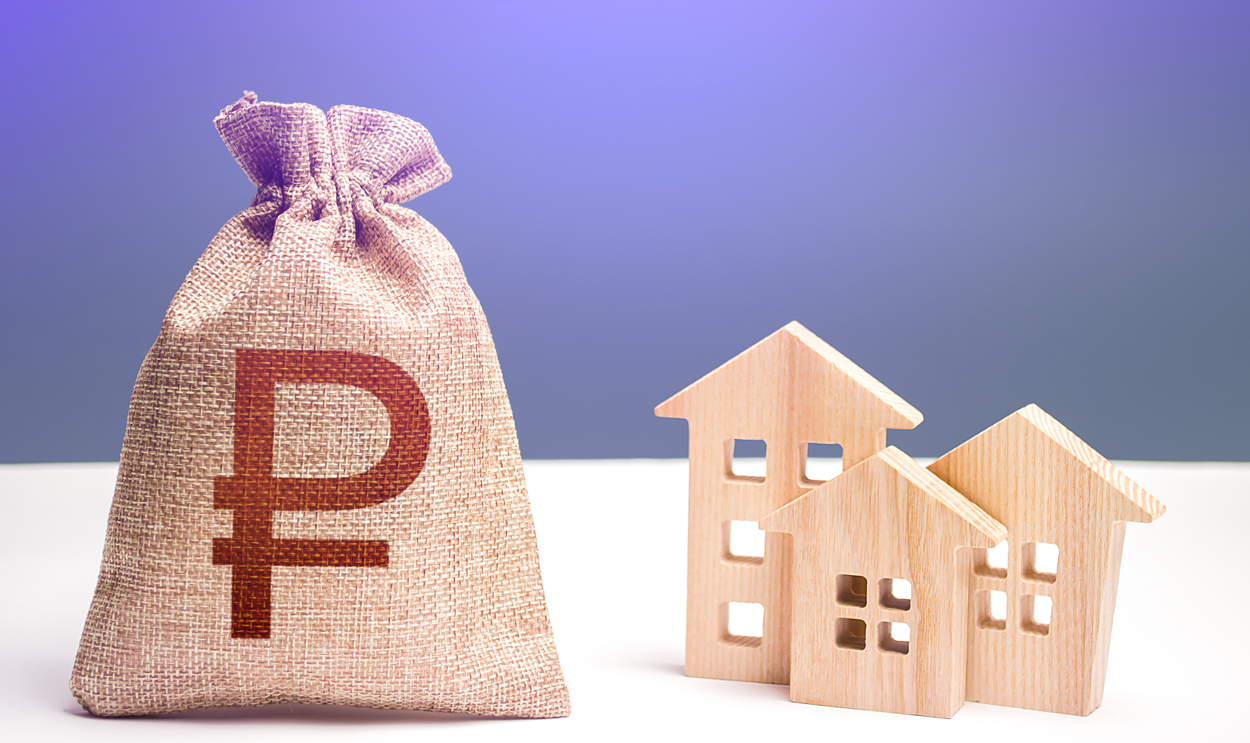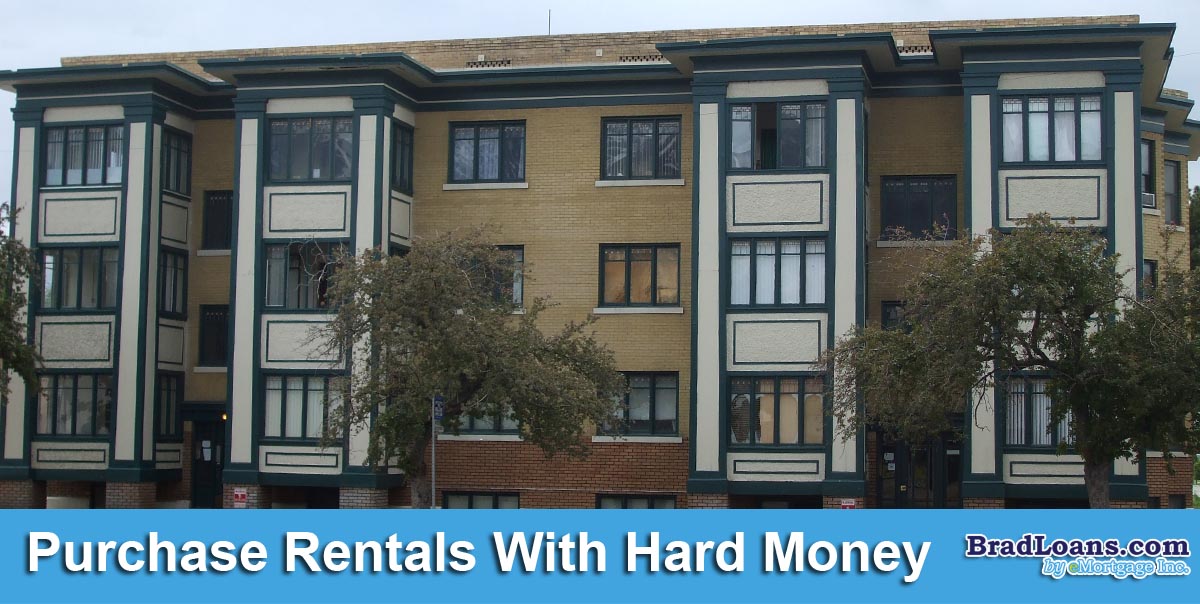
A hard money loan is a type of short-term, secured loan that is typically used to finance real estate investments. Hard money loans are offered by private lenders, rather than banks, and they typically have higher interest rates and fees than traditional mortgages.
Hard money loans are often used by investors who need to quickly acquire a property that needs repairs or renovations. The lender will base the loan amount on the after-repair value (ARV) of the property, so the borrower is expected to make a profit on the investment.
Hard money loans can also be used by borrowers with poor credit or who have been turned down for a traditional mortgage. However, these borrowers will likely have to pay even higher interest rates and fees.
Here are some of the key features of hard money loans:
- Short-term: Hard money loans typically have terms of one to three years.
- High interest rates: Hard money loans typically have interest rates that are two to three times higher than traditional mortgages.
- High fees: Hard money loans also typically have high fees, such as origination fees, closing costs, and prepayment penalties.
- Secured: Hard money loans are secured by the property being financed. This means that if the borrower defaults on the loan, the lender can take ownership of the property.
Hard money loans can be a good option for investors who need to quickly acquire a property or who have been turned down for a traditional mortgage. However, it is important to carefully consider the high interest rates and fees before taking out a hard money loan.
Here are some of the pros and cons of hard money loans:
Pros:
- Quick closing times: Hard money loans can be funded quickly, often in as little as a few days.
- No credit score requirement: Hard money lenders may not require a good credit score, making them a good option for borrowers with poor credit.
- No income verification: Hard money lenders may not require income verification, making them a good option for borrowers who are self-employed or who have irregular income.
- Flexible terms: Hard money lenders may be willing to offer more flexible terms than traditional lenders, such as shorter repayment terms or higher loan-to-value ratios.
Cons:
- High interest rates: Hard money loans typically have high interest rates, which can make them expensive to repay.
- High fees: Hard money loans also typically have high fees, which can add to the overall cost of the loan.
- Short terms: Hard money loans typically have short terms, which can make it difficult to repay the loan if the borrower experiences financial difficulties.
- Secured: Hard money loans are secured by the property being financed, which means that the lender can take ownership of the property if the borrower defaults on the loan.
What Is A Hard Money Loan?
The definition of hard money loan is: A last resort loan or short-term loan to close a bridge or gap in your finances. A hard money loan is not based on credit but it is backed by the overall value of the property.
Due to the property being used as the protection against default from the borrower, these type of loans usually have a low loan-to-value ratio also known as (LTV) typically lower than other traditional loans.
- Hard money loans are mainly used for real estate transactions and are money from a company or an individual and not a financial institute.
- A hard money loan, typically taken out for a brief period of time, is a way to raise money fast, but at higher costs and a lower loan to value (LTV) ratio.
- Since hard money loans aren’t commonly executed, the funding deadline is extremely reduced.
- The conditions of hard money loans may frequently be negotiated between the lender and the borrower. These types of loans usually use property as the collateral.
- Repayment could lead to default but nevertheless end up in a profitable business deal for the lender.
How Does A Hard Money Loan Work In Phoenix?
A bridge loan or hard money loan is a tool for short term lending which is used by real estate investors for financing investment projects. It is quite common for bridge loans to be used by real estate developers or house flippers that have a goal of developing or renovating properties than selling them for profit. Private lenders will issue hard money loans, instead of financial institutions like banks or credit unions.
Traditional bank loans tend to focus on the creditworthiness of the borrow, while hard money loans aren’t based on solely on your credit. It is based on your ability to pay back the loan along with the merit of the real estate investment opportunity and property value to approve the loan. The lender will pay close attention to the after repair value or ARV, which is an estimate of the property value after the renovation or development has been completed. Lenders will also take into account your plan for what needs to be done to a property, who will do it, and how it will be paid for. The overall business plan is a larger factor in these lending situations than the credit history of the borrower.
Hard Money Loans For Phoenix Real Estate
Hard money lenders are in the business of funding real estate property investments – not the standard dream house of the homeowner. Usually, investment properties need work so they can be sold at their full value. Either through resale (the classic “Fix & Flip”) or for renovating and buying a property for rental.
If a real estate investor does not have deep pockets, a hard money loan is a viable option so they do not have to pay cash for every property they buy. Although having shorter terms and higher rates, hard money borrowing is simply a game of numbers. When everything you are investing comes together for profit, a hard money loan can be a good choice.
If you are unsure of the higher rates and lack another source of funding you may have to walk away from a great deal, so it may well be the case a hard money loan is a good choice after all.
What Hard Money Lenders Consider When Funding A Property
Lenders will often use a decision matrix known as “The Six C’s” when they consider their options to fund a property. The goal is to minimize risk while still making money.
Lenders are looking for more than higher yields. They eat secure, safe investments that make a return on their capital and a return on investment that is solid. They need to know when they will be paid back and how. Relationship building is important to hard money lenders as they like to build repeat business with investors.

Hard Money Loan Requirements
Here are the seven requirements to receive a loan from a hard money lender.
Step 1. Save Up A Down Payment
A down payment on a hard money loan is oftentimes larger than a down payment made on a traditional mortgage. This is simply because the loan is only backed by the property in question. The down payment on this loan is the difference between the purchase price plus the budget, and 70% of the ARV.
For instance, let’s assume an investor is purchasing a property for $200,000, with a $50,000 budget. The down payment would then by 70% ARV – purchase – budget. So, $300,000 x 70% – $210,000 – $50,000 equates to a $40,000 down payment. Bear in mind you also must cover the property insurance, fees, closing costs and other underwriting expenses.
Step 2. Set Up LLC.
Few of these projects in real estate go exactly as planned. Setting up an LLC for your investment(s) is the best way to protect your personal assets, while limiting your risks at the same time.
Most hard money lenders tend to only lend to corporations and LLCs. Hard money lenders will not issue consumer loans, so working with an LLC ensures the loan is strictly a business transaction.
Step 3. Find A Reputable Hard Money Lender
Not all hard money lenders are the same. These are privately-owned businesses and individuals, so it’s crucial to weigh these factors when searching for a lender:
- Reputation: Does the lender have a good reputation among local builders and home flippers?
- Speed: How fast can the lender get you the funds you need for the project?
- Affordability: Shop around for competitive rates since hard money lenders have higher interest rates than traditional loans.
- Location: Make sure you always work with a local lender.
Step 4. Prepare Your Proof Of Income
Getting approved for hard money loans will require much less paperwork than applying for a traditional loan. One of the few requirements is providing proof of income. Your lender needs to know that you can make the required monthly payments prior to giving you said loan.
Step 5. Set Up A Payment Strategy
These are short-term investments, with usual terms of 12-24 months. This means you will need an exit strategy from the start.
The most common strategy is selling the property within the loan period. Most hard money loans are passed out for flips or construction projects. Investors typically sell the property at a profit once the work is completed.
Step 6. Apply For The Loan
Applying for these loans is surprisingly simple. There are very few requirements, as mentioned above, and hard money lenders usually have applications available online.
Step 7. Review Paperwork With An Attorney
The last suggested step to take is reviewing the paperwork with an attorney. An attorney will check the following items:
- Are all the fees disclosed?
- Is the payment schedule included and clear?
- Does the agreement clarify how much of the payment is applied to interest?

Hard Money Loan Benefits
Clearly there are limitations to convention loans offered by banks, especially for fix and flip opportunities. They take longer and are limited by bank conducted property appraisals. Hard money loans offer huge advantages for investors and home buyers.
Much Faster Application Process: The application process requires less documentation and is conducted much more quickly. The borrower’s financial history will be looked at but more importantly if the borrower is able to produce a down payment and the project’s merits. Many loan applications can be approved and funded in as little as 7-10 days! Compared to the month or more that conventional loans you will have a much greater chance of getting the property secured for your real estate investment project, or the home of your dreams.
Greater Fix & Flip Flexibility: Hard money lenders evaluate the feasibility of project to turn a profit based on what it will generate during the renovations or upon completion of the project when it is sold. The condition of the property is taken into consideration but hard money lenders are not as concerned with the present value of the property as they understand that an integral element of the process is to improvement of the property. A factor that hard money lenders value is, how quickly a real estate investment will make them back their investment, plus the interest on the loan. Read more about: Fix And Flip Loans
Funding For Bad Credit: Whether you’ve just started out and don’t have any established credit history or if you have had problems with your credit, hard money lenders have much more flexibility to who they make loans to. This is a major advantage for a lot of consumers that have unavoidable credit challenges but still want to purchase a home, or want to get involved with real estate investing.
The Six C’s of Hard Money Lending
- Collateral: As lenders are in the money business as opposed to the real estate business – they carefully consider the marketability, physical condition, and potential profit among others all to determine the form of equity cushion offered by the property in its loan-to-value (LTV.) They ask “What are we left with?” should the property have to be foreclosed on.
- Conditions: In order to minimize risk, lenders look carefully into the conditions surrounding the area, what is the investment target area and the availability of resources, demands for the property, other property inventory and is the property for rental or resale?
- Capacity: lenders need to know the borrower has the capacity and the means to carry out the terms of the loan and the proposed renovations. They will look at partnerships, experience, outcomes, existing obligations and resources of the borrower.
- Capital: “No Money Down. is a misleading notion in the world of real estate investing. Lenders want you to have some skin in the game at the closing table.
- Character: lenders may also look at the character of the political borrower. They look for judgments, liens, and background checks as well as derogatory public records and their criminal background.
- Credit: Credit is not the most important thing when it comes to asset-based, hard money lending. Good credit can be a deciding factor though but it is combined with how good the other five
Private Money vs. Hard Money
Private money lenders source capital for hard money loans – but there is an important distinction. Private money lenders are individuals who work on behalf of themselves. Hard money lenders are single entities working on behalf of private lenders of money to offer their capital for a return.
When you need short term funding for real estate investments, hard money loans are often the answer. Utilized frequently by fix & flip investors. Hard money loans are quick to close and are far more flexible than mortgage loans that are traditional. hard money loans are sometimes referred to “easy money with hard terms.” In other words, they are more costly but easier to get. Real estate investors look at the cost of hard money as part of their projections for profit on fix & flip properties.
Hard Money Lenders in Phoenix, AZ
When you are searching for hard money loans near me in Phoenix, Scottsdale, Glendale, Tempe, Mesa, Chandler, or Gilbert, Arizona; Brad Loans is Arizona’s most trusted direct hard money lender! We specialize in hard money loans for Fix and Flip, refinancing mortgages with bad credit, business loans secured by real estate, real estate purchases, short sales, and other endeavors with quick turnaround in the Phoenix Valley.
BradLoans.com is the most trusted direct hard money lender and private money lender in Arizona! We are the best hard money lender in Arizona with the ability to fund commercial & residential hard money loans many times within a couple of days or less. Our lending rates and fees are reasonable compared to other Arizona hard money brokers or mortgage brokers in Arizona.








